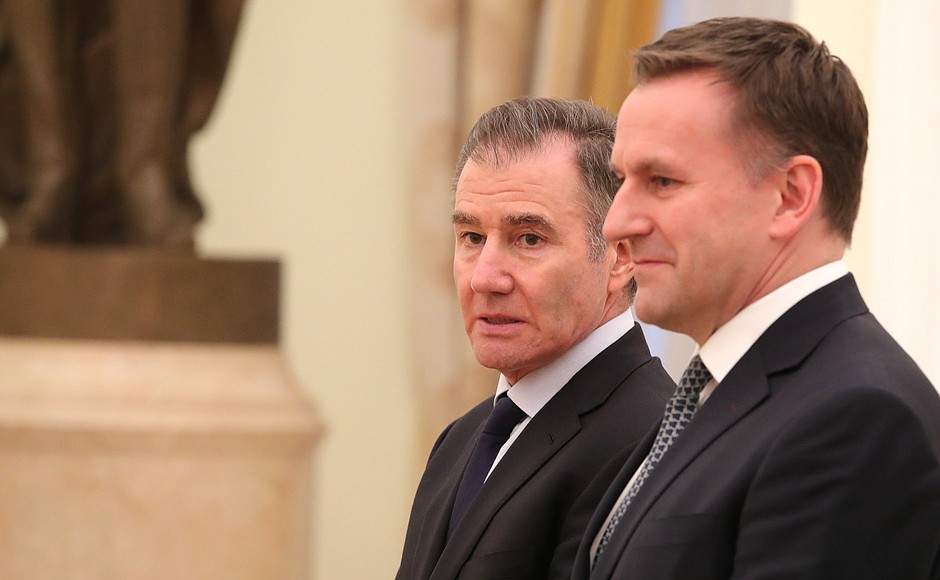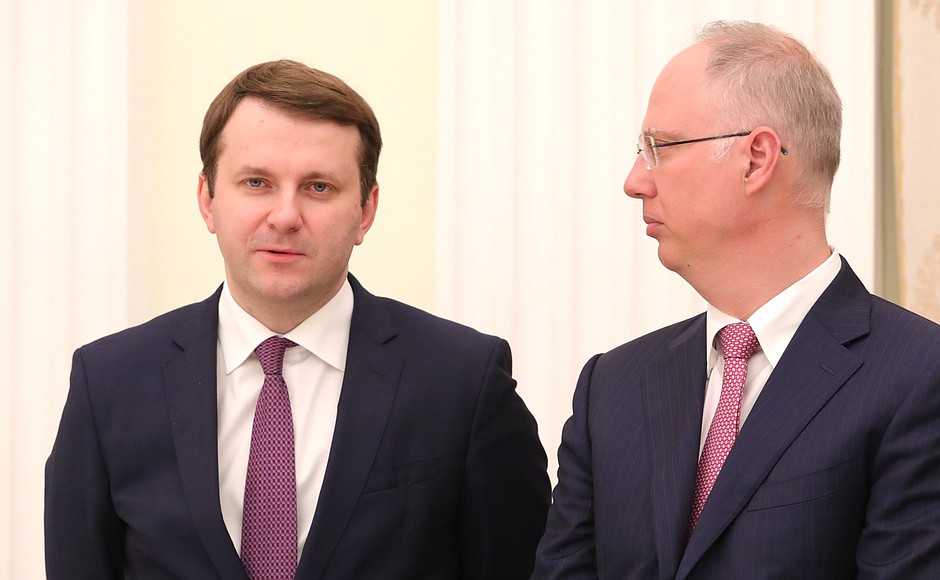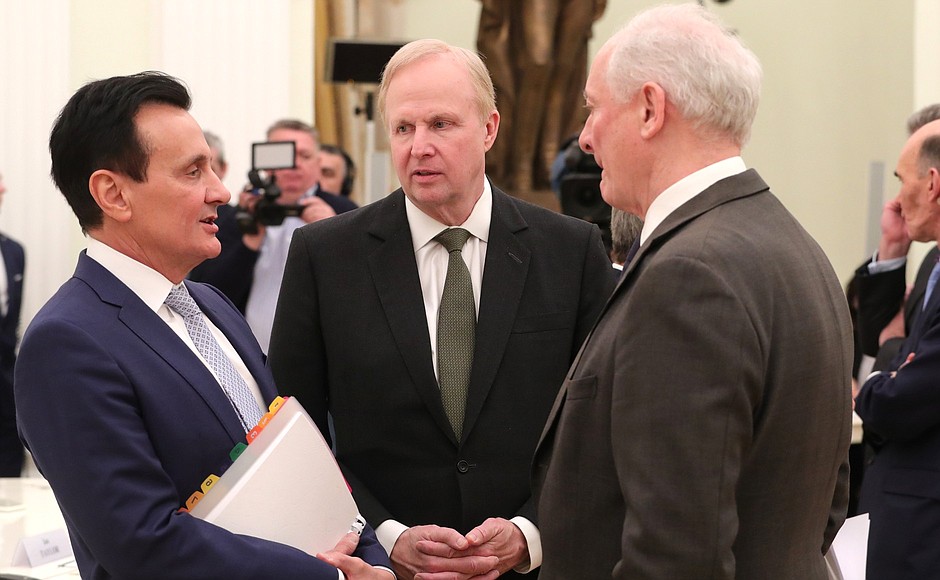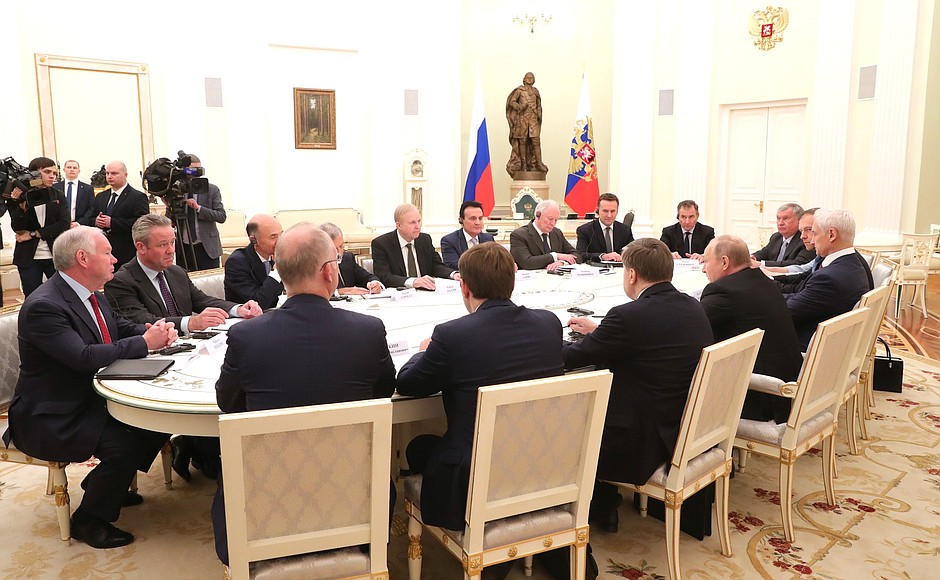President of Russia Vladimir Putin: Good afternoon, colleagues and friends.
Allow me to welcome you to Moscow. This is not a foreign city for you. Many of you, probably all of you, have worked in Russia for some time. I would like to thank primarily Mr Dudley for his initiative to meet in this format. I must say that meetings like this with our partners from European and other countries are a permanent practice. We regularly meet with business representatives from France, Germany and Italy, to name a few. As a rule, this helps us plan our cooperation in many diverse areas, helps us understand what concerns our partners, if this is the case, and determines the most promising avenues for cooperation.
But we know that regrettably in the past few years and up to this day relations between Britain and Russia have not been at their best. And this is an obstacle for those who are doing positive work. Despite the problems in interstate relations, and it should be admitted that they do exist, thanks to the people who think positively, our trade grew by 23 percent in one go in 2017, strange as it may seem. After energy prices stabilized, it increased by another 8 percent last year to $13.7 billion. Cumulative British investment in the Russian economy amounts today to $23.8 billion while the relevant figure for Russian investment in Britain exceeds $11 billion.
More than 600 enterprises partly owned by British businesses operate in our country. That is quite a large number. They operate in the industry in the broadest sense, such as mechanical engineering, and the pharmaceutical and other innovation-driven industries. The energy corporations of Russia and the UK are involved in producing and processing crude oil and gas, raw materials, and generating and delivering electric power. They are jointly implementing major projects such as Nord Stream 2 and Sakhalin 3. And I am not even talking about BP being the largest shareholder in our leading oil and gas company, Rosneft.
Experts from London’s City are involved in efforts to create an international financial centre in Moscow, and the London Stock Exchange facilitates capital flows to Russia. The securities of almost all public Russian companies are listed on the LSE.
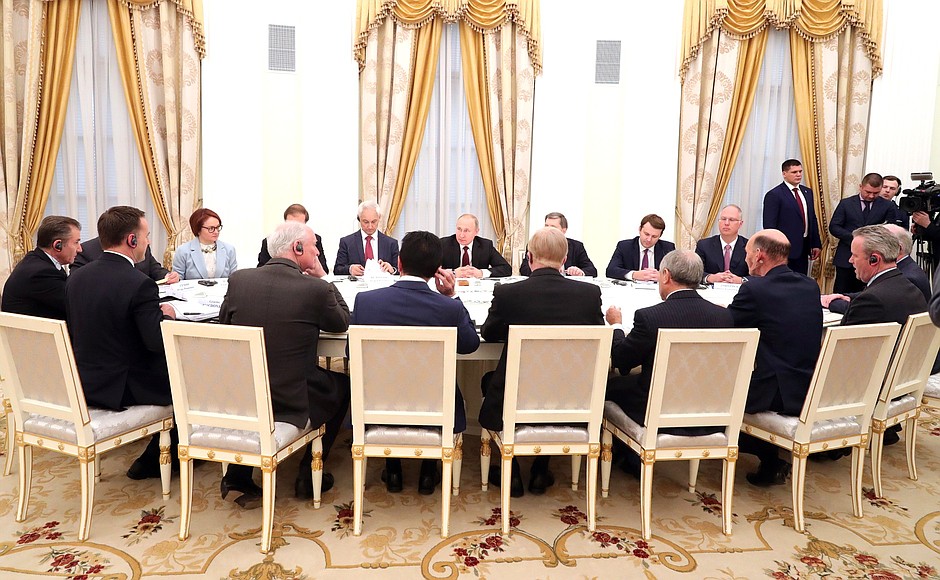
I would like to emphasise that we in Russia are doing our best to make sure foreign investors, our partners and friends, feel comfortable working on the Russian market and do not come under excessive administrative stress. For your information, Russia is now 31st in the World Bank’s Business Freedom Index having risen dozens of places over the past five years.
Positive dynamics continue in all key macroeconomic indicators. According to the latest estimates, the country's GDP added 2.3 percent last year. The growth of industrial output was even higher at 3 percent. Hundreds of billions of dollars will be invested in critical sectors of the economy and the social sphere as part of national projects. I did not misspeak, we are talking about investing hundreds of billions of dollars. I am sure that your companies could be part of this work; the market is large enough for everyone. We hope that once implemented, these projects will have a comprehensive synergetic effect on the dynamic growth of the entire country, and will open up significant business opportunities, including for the British business community.
I would like to take this opportunity to encourage British entrepreneurs, who have always been widely represented at the St Petersburg Economic Forum, to take an active part in its work this year. It will take place on June 6–8.
This ends my opening remarks and I ask Mr Dudley to speak to us, please.
BP Group Chief Executive Robert Dudley: Thank you very much, Mr President, for having us here today and inviting us for this exchange of views. It means a lot to us, it is very welcome and I think it is a very useful initiative.
The relationship between Russia and the United Kingdom is a very deeply historic one. And restoring it and nurturing it can only bring great benefits, I believe, to both sides. Because they date back for half a millennium, to the 15th century, and over that time the ties between the two countries have been pulled in many different directions. There have been times of great allegiance and high tension but the connection has always endured, not least because of trade.
As you outlined there, the statistics of trade there are quite impressive. Because trade keeps open the channels of dialogues between the two countries. Trade supports the growth and the prosperity and it is also an important bridge when other channels of communication close down. In those times, you have always been able to talk to find common ground and that is essential for restoring and building trust.
In BP, we deeply appreciate the support you have given us over the years, Mr President, as we built our relationships here in Russia over the last 30 years. And in that time we have been able to grow our investment substantially. We are deeply appreciative of the trust that Russia has placed in us to work with and help stuart Russia’s natural resources and, of course, with our relationship with Rosneft. With your support, Mr President, we have gone from a single retail station in Moscow to the strategic partnership we have today with Rosneft. Igor Ivanovich, we are grateful to you for the opportunity to work with one of the world’s great oil and gas companies and see our joint businesses grow in value as we draw on the professionalism and the expertise, I think, that each of us bring to the partnership.
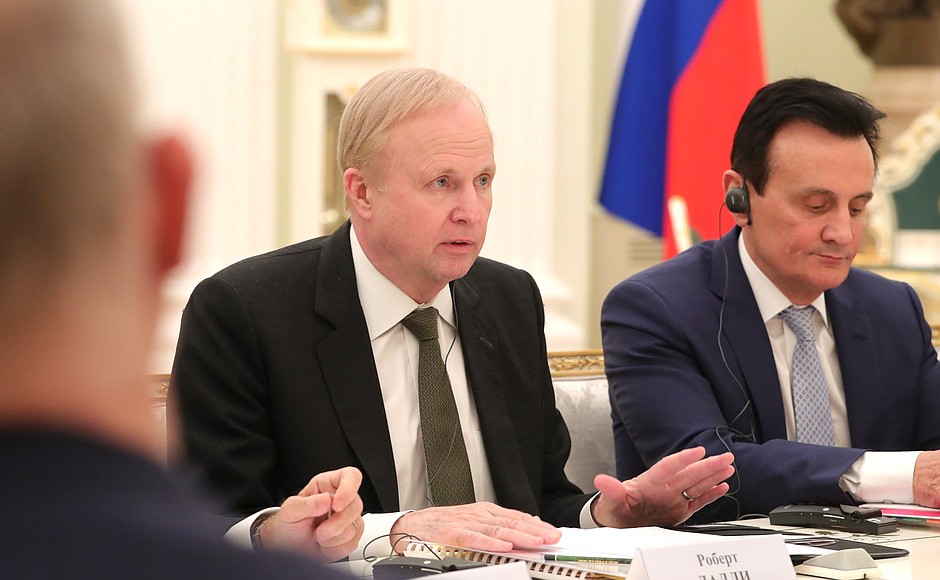
The world has changed profoundly since the 1990s, as have BP’s interest here. We now account for more than half of the capital flows from the UK to Russia. That is a proud claim for BP. It is also part of the illustration of the main point I would like to make, which is that the UK is Russia’s single biggest foreign direct investor but that the majority of that investment comes from our own company. And that means that there is huge potential for the company and other companies across the UK, industries and sectors to grow, diversify trading connections between the two countries.
Just to take one example. There are nearly, and you know this, Mr President, but there are nearly 5,000 individual trading relationships between Russia and Germany. I think you said, 600 between the UK. That means there has to be a scope for thousands of UK businesses to do the same. And the more there can be done to foster and grow that mutually beneficial trading relationships, the more the lines of communication can be opened – and the greater the opportunity to build trust, reduce tensions, create bonds, create jobs, economic growth.
So as a group here we are grateful for the opportunity to participate in the effort of restoring trust, support mutually beneficial relationships between the two countries. And I am very pleased that such a broad cross-section of British businesses here today are interested in your views. Some of them have questions and comments. But again, thank you for allowing us to be here today.
<…>
